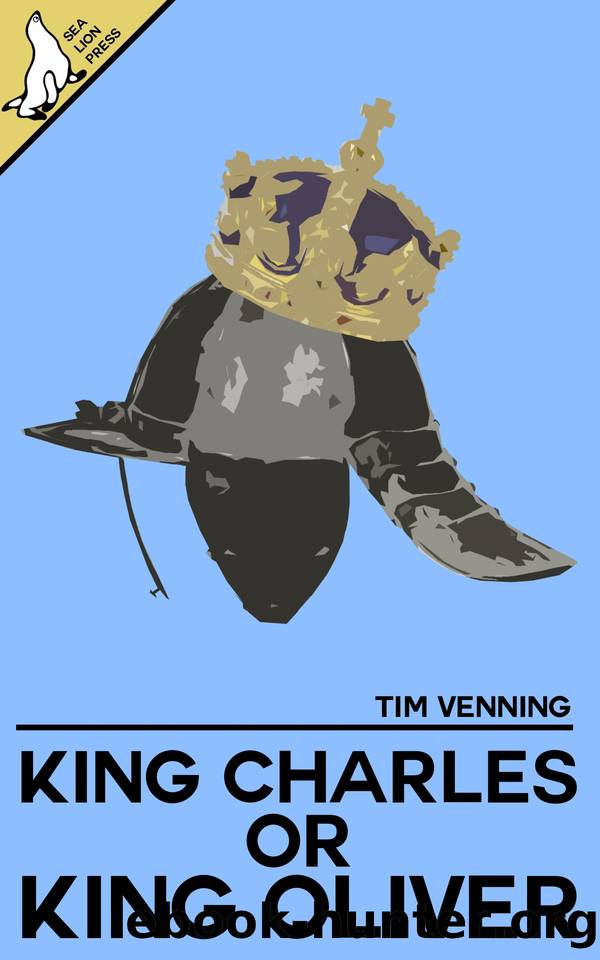King Charles or King Oliver? by Tim Venning

Author:Tim Venning [Venning, Tim]
Language: eng
Format: epub
Tags: RO:SF
Publisher: Sea Lion Press
Published: 2017-12-27T00:00:00+00:00
Section Three: Charles II
Chapter Four: What if Charles II had not died in 1685?
The triumph of Royal power after 1681
The return to political insecurity in the mid-1680s was totally unexpected as seen from the perspective of 1684. The government of Charles II â seriously rocked by violence and political controversy only a few years before, with gloomy predictions that ââ41 was come againâ â was secure, and the supremacy of Royal power restored after its most serious political challenge since 1660. Charles had defeated the attempt to force him to surrender his right to nominate his own heir, even if that person was Catholic, despite a co-ordinated political campaign led by skilled senior political figures under Anthony Ashley Cooper, ex-Cromwellian Councillor and now Earl of Shaftesbury â and involving popular pressure on the streets, as in 1641. The final defeat of the Exclusion Bill and attempts to coerce Charles, the closure of Parliament at Oxford in March 1681 without the thwarted âWhigâ opposition being able to respond effectively, and the preventive arrests and trials of the Whig leaders had crushed the attempt to use the ferment of the âPopish Plotâ to coerce Charles into altering the succession and removing his Catholic brother.
Having survived the political storm of 1678-81 that had driven Danbyâs administration from power and temporarily lost Royal control of the Privy Council, Charles sacrificed innocent and guilty alike to the charges of plotting laid against them but subsequently outmanoeuvred his Whig opponents. He managed to win a regular subsidy from Louis XIV which enabled him to survive without calling Parliament in 1684 as he was obliged to do under the Triennial Act, minimizing the risk of MPs protesting at his repression as he remodelled the civic corporations and gave free reign to Anglican JPsâ fears of the Dissenters (he had been advised to call a Parliament and show his respect for the law by one prominent minister, the âTrimmerâ Marquis of Halifax, but evidently ignored him and listened to Jamesâ hard-line faction instead[172]). He also survived a dangerous foreign policy crisis which observers believed might have re-ignited anti-French opinion in England and required him to call a Parliament to reassure his subjects in 1682, namely the provocative French blockade of Luxembourg.[173] This threat led to both the Dutch and their Protestant German neighbours urging English action (which Charles was supposed to carry out if the 1678 Anglo-Dutch peace of Nijmegen was threatened by an attack on either party by a third power) and the threat of Protestant agitation for a war, which could get out of hand and ruin Anglo-French relations. Charles did threaten to call Parliament if France attacked the adjacent Spanish Netherlands, after his Council prodded him into this, but privately he just asked Louis to keep out of Luxembourg â and, when that failed, to occupy it but demolish its walls so it was militarily useless and thus no threat to the Dutch (which Louis did). Louis was seeking to blackmail his weak neighbour Spain
Download
This site does not store any files on its server. We only index and link to content provided by other sites. Please contact the content providers to delete copyright contents if any and email us, we'll remove relevant links or contents immediately.
Sita - Warrior of Mithila (Book 2 of the Ram Chandra Series) by Amish(54752)
The Crystal Crypt by Dick Philip K(36816)
Cat's cradle by Kurt Vonnegut(15258)
Always and Forever, Lara Jean by Jenny Han(14846)
Ready Player One by Cline Ernest(14574)
The Last by Hanna Jameson(10194)
Year One by Nora Roberts(9743)
Persepolis Rising by James S. A. Corey(9290)
The remains of the day by Kazuo Ishiguro(8892)
Never let me go by Kazuo Ishiguro(8785)
Red Rising by Pierce Brown(8680)
Dark Space: The Second Trilogy (Books 4-6) (Dark Space Trilogies Book 2) by Jasper T. Scott(8144)
The handmaid's tale by Margaret Atwood(7706)
The Circle by Dave Eggers(7064)
Frank Herbert's Dune Saga Collection: Books 1 - 6 by Frank Herbert(7001)
The Testaments by Margaret Atwood(6835)
Legacy by Ellery Kane(6617)
Pandemic (The Extinction Files Book 1) by A.G. Riddle(6485)
Six Wakes by Mur Lafferty(6198)
